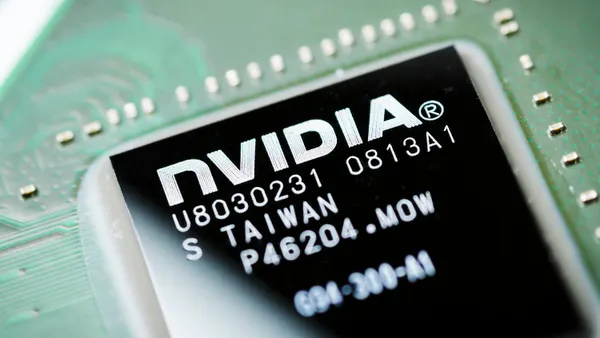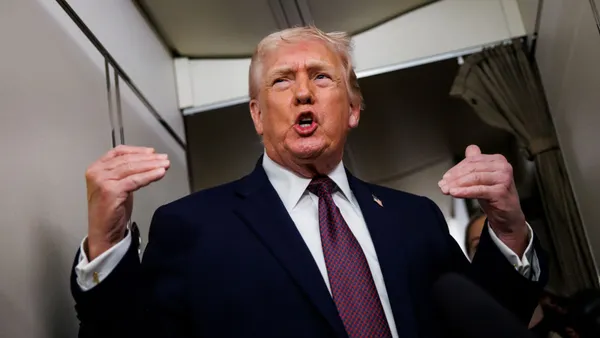Dive Brief:
- The U.S. has a choice between leading the global economy and ratifying the Trans-Pacific Partnership (TPP) or allowing other countries to set the standards for world trade, UPS CEO David Abney said Monday in an interview with the Wall Street Journal.
- Abney warned that if the U.S. Congress does not ratify the agreement, Asian countries would sign an agreement of their own and exclude the U.S. Trade agreements have on average resulted in a 20% export bump to the partner country, he added.
- The agreement was signed by 12 pacific rim countries last October, accounting for 40% of world trade, but awaits ratification by each country. Since the agreement was reached, however, the presidential candidates of both parties have publicly opposed its ratification
Dive Insight:
The TPP was once hailed as the largest trade deal ever reached, and a landmark of President Obama's pivot to Asia, but the grapes have turned sour. Rhetoric from both parties presidential candidates have inspired an energetic opposition to the agreement, although polls suggest many Americans support the agreement. The deal's passage is uncertain at best.
An August poll of the issue by Morning Consult revealed 43% of Americans still do not know or have no opinion on the issue. Of those who have an opinion, 35% support the deal while 21% oppose it.
Abney emphasized the deal could eliminate red tape from e-commerce and remove tariff and customs barriers for small and midsized companies. Opponents contest the trade agreement benefits large corporations and would make it easier for jobs to leave the U.S. and roll back protectionist measures such as Buy American policies.
The U.S. Trade Representative adds the deal would replace standing trade agreements, such as the North Amreican Free Trade Agreement, except in non-overlapping clauses.












